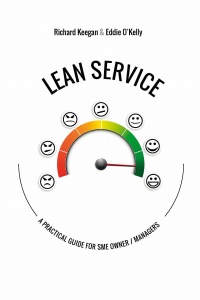Measures for the sales team26 August 2016 | Admin To manage, you need to measure. But how do you measure a sales team? In their book on LEAN SERVICE, Richard Keegan and Eddie O'Kelly have some ideas: Using measures can be helpful when it comes to managing a sales team. Is the salesperson who spends all their time in the car being effective? Is there an opportunity to learn from the best members of the sales team, by sharing and developing a company-wide sales process? Some of the more obvious measures are those that relate to personal sales made, which are easily tracked, using a run chart to check patterns over time and also in bar chart form to see progress towards a target level. The overall sales level can also be tracked in this way. An additional twist to sales measurement looks at the variation between list price and actual sales price invoiced. If there is a significant differential, maybe the list price is too high or maybe margin is being given away too easily. Either way, at least by measuring the differential, attention will be drawn to the issue. Back to your sales person in his / her car. A simple but very interesting measure for someone managing a sales team is the measure of sales made per kilometre driven. This is an effectiveness measure and often can be useful in helping sales staff to realise the opportunities for a more focused approach to selling. Finally, forecast accuracy is a very important measure from the point of view of the overall business. Sales forecasts should be driven towards being more accurate and also driven to meet the growth needs of the business, putting pressure on sales, design, operations, procurement and logistics staff to meet them. Extracted from LEAN SERVICE: A PRACTICAL GUIDE FOR SME OWNER / MANAGERS by Richard Keegan and Eddie O'Kelly. |
|

